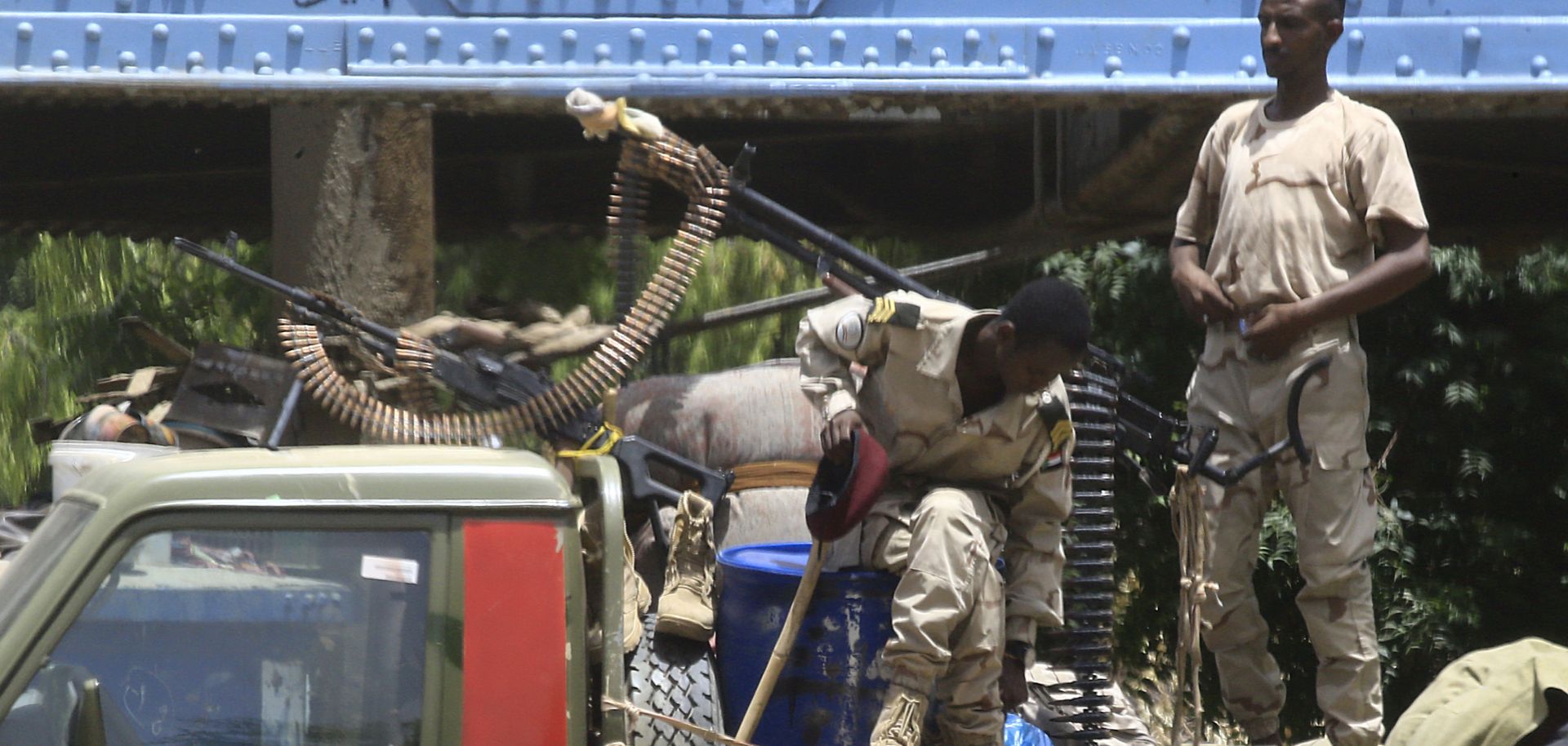ASSESSMENTS
A Gulf Between Sudan's Military and Civilians Dims Hopes of Stability
Jun 13, 2019 | 10:30 GMT

Members of Sudan's paramilitary Rapid Support Forces patrol Nile street in the capital Khartoum on June 10, 2019 on the second day of a nationwide civil disobedience campaign called to pressure the ruling military into handing over power. - A nationwide civil disobedience campaign by Sudanese protesters entered a second day today, as the authorities released three prominent rebels detained after a crackdown that left dozens dead. Some shops opened and buses plied the streets of Khartoum, but much of the capital remained shut. (Photo by - / AFP) (Photo credit should read -/AFP/Getty Images)
(AFP/Getty Images)
Highlights
- Successful negotiations on a transitional process between the military council and the civilian opposition in Sudan are increasingly unlikely, as security forces stick to their plans and repress civilian opponents.
- While the military council will face significant diplomatic backlash over its chosen strategy, its support from the Gulf states, Russia and China will likely allow it to weather the storm.
- With little potential for compromise between the military and protesters demanding radical democratic reform, lasting instability in the form of demonstrations, repression and economic woes will likely shape the future of Sudan.
Subscribe Now
SubscribeAlready have an account?
